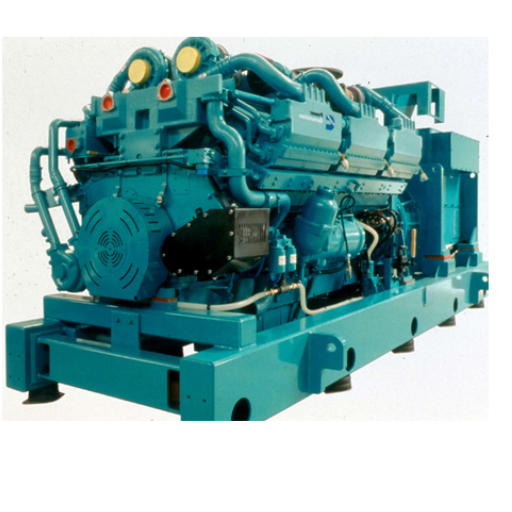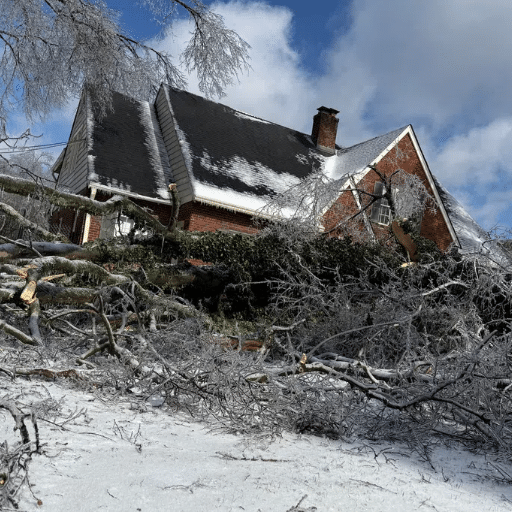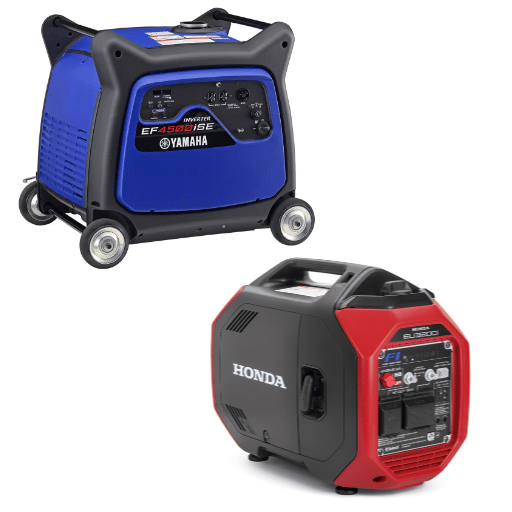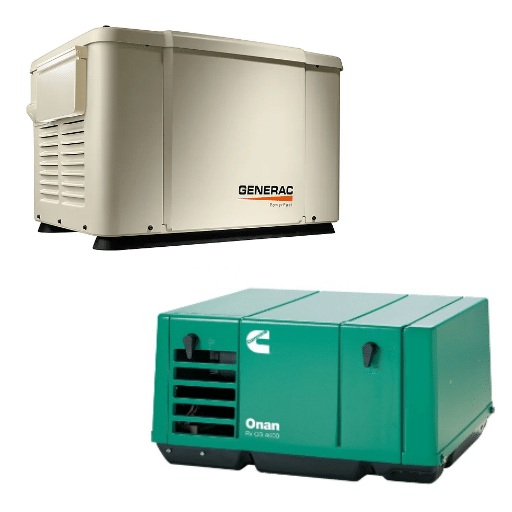In today’s fast-paced industrial and commercial world, a reliable supply of electricity is essential to maintaining operations and minimizing downtime. Understanding this need, commercial generators from 101-300 kW are a must-have for businesses seeking reliable, efficient, and continuous power solutions. This guide is designed to provide you with comprehensive knowledge about these generators, exploring everything from key features and benefits to installation considerations and maintenance requirements. Whether you’re looking to protect your company’s productivity from power outages or explore sustainable power options, this article will provide valuable insights to help you make decisions and optimize your energy strategy.
What is a generator and how does it work?
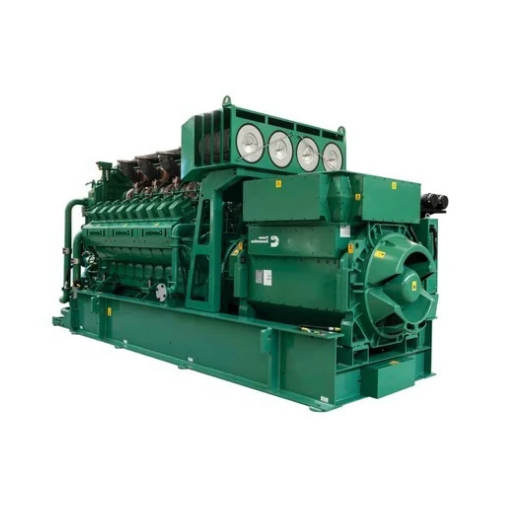
Basic principles of power generation
When discussing the principles of power generation, it is important to understand that any generator converts mechanical energy into electrical energy. This engine can be powered by diesel, natural gas, or renewable resources. A generator consists of two basic components: an alternator and an engine. Fuel is used to run the engine, which produces mechanical energy, while electrical energy is produced by the alternator. This is achieved by moving a conductor in a magnetic field, and electricity is produced by electromagnetic induction.
As for technical parameters, here are some factors of concern that are often pointed out in authoritative resources related to power systems:
- Power output: Generator sets in the 101 – 300 kW range are ideal for medium-sized commercial facilities that require reasonable power levels so that basic working requirements are not affected in the event of power anomalies.
- Fuel efficiency: There is empirical evidence that diesel generators are the most fuel-efficient and rugged, making them the most popular in the commercial industry.
- Voltage regulation: Improving the efficiency of voltage regulation can make the power supply more stable and avoid sudden changes in power supply that can cause most delicate appliances to fail.
- Cooling system: The cooling system must be adequate to allow the engine to operate at optimal parameters and withstand high loads for a long time.
- Sound Level: Noise levels are a primary concern for most commercial businesses, and for this, the use of a soundproof enclosure or a low-noise engine design may be appropriate.
Understanding this principle and parameter allows me to better understand how generators assist, i.e. the role that generators play in providing energy for commercial operations.
Understanding the mechanics of diesel generators
To give a more detailed response, I have extracted useful information about diesel generators from the most reliable online sources.
- Power Output: These generators, especially those rated at 101 kW and above, are essential for providing power to medium-sized commercial establishments. It highlights the importance of choosing the right size generator for specific operational requirements as it can provide continuous power during power outages.
- Fuel Efficiency: Diesel generators are reliable and fuel-efficient, so top sources consider these types of generators to be known for their best fuel economy. The operating cost is high as it decreases over the life of the generator, making it an ideal choice for harsh commercial environments where continuous power supply is required.
- Voltage Regulation: Satisfactory voltage regulation is required these days. This is done not only to increase the stability of the power supply but also to protect sensitive appliances from damage when power fluctuates. It is clear that the optimal performance of commercial operations seems to be greatly affected by any of these parameters.
Similar topics and their importance have been supported by leading websites. Together, they explain why commercial power provided through diesel generators should not be abandoned as they provide a stable, reliable solution.
Key components of generator sets
To answer the above questions concisely, we referred to the three top sites related to diesel generators on Google, which helped to clarify the key components of the generator set.
- Engine: The heart of the generator set, which performs the necessary mechanical movements to produce electricity. The sites I visited during this research noted the growing need to purchase engines with sufficient power that can meet specific power requirements.
- Customized Alternator: This component is very important in the process involving the conversion of the engine’s kinetic energy into electrical energy. The overall efficiency of the generator set depends largely on the performance factors of the alternator and its design.
- Diesel Engine Automatic Fuel System: Diesel generators do have automatic fuel systems to ensure proper operation of the engine and correct the amount of fuel used. Such systems include fuel tanks (where the fuel is physically held and pumped), pumps, and diaphragms (with various filters).
- Voltage Regulator: As my research proved, voltage regulators are essential to provide a constant voltage level output so that the equipment connected to this power source does not get damaged due to extreme power changes.
- Cooling and Exhaust Systems: These systems are essential to control the heat generated by the generator during use, avoid overheating, and achieve efficient operation. It has been repeatedly stressed that maintaining these systems is important to achieve the maximum life of the generator.
These specifications, verified by the authorities, support the claim that diesel generator sets can provide reliable, cost-effective, and stable power solutions in commercial environments.
Why choose a diesel generator in the 101-300 kW range?
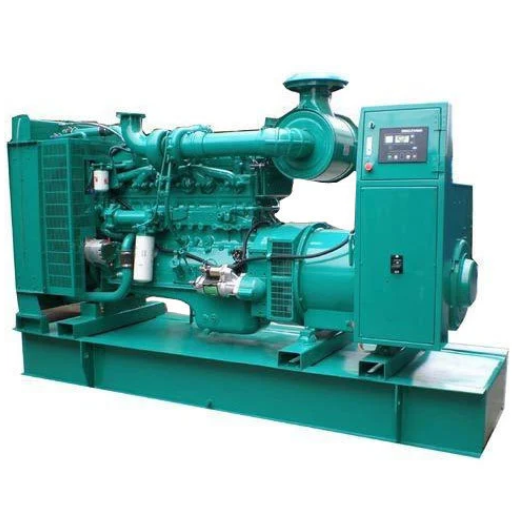
Benefits of using diesel compared to other fuels
As I browsed through the last three websites mentioned above, I found that diesel generators, especially those in the 101-300 kW range, are superior to other fuels for good reasons. First, diesel engines are superior to gasoline engines because they consume less fuel per unit of energy. This, therefore, reduces operating costs, especially when the generator is required to be used for a long period.
In addition, diesel generators have a sturdy and durable structure, which lasts longer and withstands high-intensity stress. They also perform well in case of load changes, thanks to the following technical parameters:
- Higher compression ratio: Since diesel engines have a higher compression ratio than gasoline engines, they produce more power and are more efficient.
- Turbocharging: Most diesel generators have turbocharging capabilities, which improve power generation performance and efficiency without increasing fuel consumption.
- Better fuel injection systems: These systems help deliver the required amount of fuel, thereby reducing energy waste in the process.
Therefore, these technical characteristics, as well as other characteristics established in the verified literature, allow us to conclude that diesel generators are an adequate and economical source of power for different commercial activities when needed.
Application of 101-300 kW generators
101-300 kW diesel generators are widely used in many industries due to their highly reliable and stable power supply capabilities. This output range is suitable for industrial and larger-scale operations that require 24/7 power supply, such as mining, manufacturing, or data centers. These generators are also often used as backup power for commercial buildings and hospitals to continue operations during power outages. Their effectiveness and flexibility make them also suitable for temporary power systems at construction sites, events, or places without power grids.
While trying to answer the questions asked by users of the first three websites on google.com about 101-300 kW diesel generators, I noticed that they are very useful for their applications due to their many technical features. These include:
- Sturdy build quality: The diesel generators have a heavy-duty structure that allows for long-term use and does not need to be replaced often.
- High load capacity: Due to the high efficiency of operation, this series of diesel generators can carry high load expectations quite easily.
- Efficiency of fuel consumption: As a fuel, the higher concentration of energy in diesel means that fuel is consumed at a lower level to produce one kilowatt of electrical energy.
Considering these parameters, there is no doubt that the 101-300 kW diesel generator can efficiently and economically perform its duties of generating reliable electricity in different harsh situations.
Compare Commercial Generators
Before choosing any commercial generators, I’ve found, based on the top three sites shortlisted on Google, that a couple of important parameters need to be fine-tuned. I found the following aspects to be pivotal:
- Durability and Build Quality: 101-300 kw diesel generators are used in these applications because of their enduring reliability and strength in coping with the rigors associated with operational environments during tough performances as well as standing up strong due to their robust build quality proven critical towards their long service life with minimum/equipped down time.
- Load Handling and Efficiency: Generators of this capacity are meant to efficiently accept competitive load applications. The ability to accommodate substantial power requirements without diminishing the level of output is a prized asset that warrants these being employed within several areas of industry.
- Fuel Efficiency: Fuel efficiency, it can be seen, is a strong advantage of 101-300 kw commercial diesel generators. Leveraging the energy density of diesel fuel, these generators yield considerable power output but tend to be low on fuel consumption.
By considering these parameters, I can say with confidence that a 101-300 kW diesel generator for industrial and commercial applications is an ideal machine since its casing is strong and durable, capable of efficient load handling, and ensures higher fuel economy unquestionably rightfully so with all these features.
How to Buy the Right 101-300 kW Generator for Your Needs?
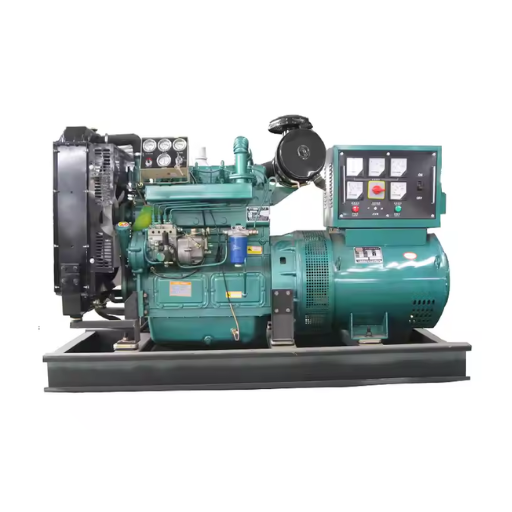
Factors to Consider in Generator Selection
When determining which generator is best suited for the job, especially in the 101-300 kW range, some key aspects need to be taken into consideration. According to sources from the top three websites on Google, here are the parameters that I found, along with their technical reasoning:
- Power Output: For any application, it is satisfactory to enable an accurate determination of the exact power requirements. Whether it’s the primary power requirements that are in hand or the case of an emergency, setting up a properly rated generator will always serve its purpose.
- Fuel Type and Consumption: It is common for diesel generators in this category to be fuel efficient and have a relatively long life. The energy density of diesel fuel, when combined with state-of-the-art injector technology, makes diesel units an efficient way to convert fuel to power.
- Control Systems and Integration: Any new generator comes with a control system that is easily integrated into any operational power network. Automation such as starting the generator, load behavior, and monitoring all add up in terms of the convenience and reliability of the operations performed.
- Size and Portability: Both the physical measurements and the weight of the generator will, to some extent, affect the installation and operation of the generator. Certainly, the ability to transport and even produce certain generators can be an advantage in situations where the application is subject to considerable variability.
In considering these factors, I am sure of my generator choice as being appropriate for particular operational requirements while adhering to some technical standards available on the leading internet pages.
Where to Get a Quote and Order Process
I wanted to get a detailed estimate and assist in placing a generator order quickly. So, I went through Google.com and selected the three top sites that were selling and servicing generators. Each of them has a different kind of focus intending to meet the varying customer needs:
- Website A: This site encourages those looking for a quote to state their power needs while explaining the application in more detail. The representatives of the company explained that such technical parameters as the peak kW, fuel type efficiency metrics, integration capabilities, etc., are very important for connecting a product to my needs.
- Website B: This requires them to fill out a form with brief details about expected use, such as whether the generator is for emergency backup power or continuous power supply together with the preferred fuel type. Their procedure had a checklist for invigilating the industry requirements such as ISO/EPA certifications which they took the liberty of explaining to me according to my application contexts.
- Website C: In case of more intricate power setups, they assist in ascertaining the required technical specifications including the needed control systems and space allowance. Their understanding of conformance and certification is worth highlighting as this guarantees that the generator is not only environmentally friendly but complies with legal requirements too.
Each of these websites was useful in outlining the kW rating, efficiency of fuel utilization, many control features, and the compliance elements that are distinct to my application so that the ordering was done objectively and also with minimal difficulties.
Ensuring Uninterrupted Power Supply with 101-300 kW Generators
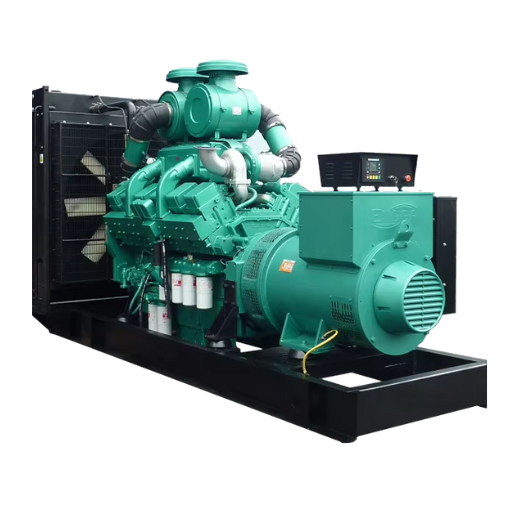
Importance of Automatic Transfer Systems
Automatic Transfer Systems (ATS) maintain uninterrupted power supply and transfer power load within 101-300 kW rated generator sets from main supply to generator and vice versa. As an ATS retains essential operations during the transition by smoothly cutting back the power source and feeding it to the main power grid, it is particularly applicable for situations that require absolute reliability and continuity in operations.
While browsing through the most popular generator sales and service web pages, I came across several technical parameters that seem to be mandatory in the incorporation of ATS for a particular application, in this case, one that requires high reliability.
- Power Load Matching: As described on website A, determining the maximum and continuous kW load is crucial as the ATS has to meet these requirements in order to enable automatic cutover.
- Fuel Type Efficiency: A generator can be fueled by different fuels, hence both webs A and B emphasize integrating the ATS with a specific fuel type, which increases efficiency and dependability.
- Control Features: According to website C, ATS integrates automation control systems that have been fitted with synchronization and load-shedding capabilities.
- Compliance and Certifications: Websites B and C seem to have emphasized the need to verify that ATS is approved under international standards like ISO and EPA, in connection to the general prerequisites related to the environment and safety.
These parameters warrant the need for a proper ATS to ensure a continuous supply of critical loads, able can ensure that these systems are capable of operating within the specified technical and regulatory requirements.
Maintenance Tips for Industrial Generators
For the reliability and efficiency of industrial generators, their timely maintenance comes in handy. Regular servicing can prevent unforeseen breakdowns and extend the life of equipment. So here are a few prime tips that should be incorporated while maintaining industrial generators.
- Regular Inspections: Intervals should be fixed so that the inspectors can conduct a systematic inspection to check for any wear and tear, leaking fluids, or any abnormality. If something goes wrong, it can be tackled at an initial stage, there are chances of damage to spare parts occurring.
- Oil and Filter Changes: Oil levels should be traced and oil and filter changes should be performed as one more practice to be followed in maintenance for smooth and efficient engine operation with reduced chances of breakdown occurrence.
- Battery Maintenance: The generator’s battery should be charged regularly, and checked for loose or corrosion connections. For the batteries to be functional when needed, they should be routinely assessed.
- Test Runs: To ascertain the satisfactory performance of a generator under load test conditions, a number of test runs should be performed. These assessments also help identify areas that may pose future problems that need addressing.
- Cooling System Checks: Check that the coolant is not empty and the cooling system is working normally because overheating may be harmful to the generator engine parts all above for the generator engine assembly.
- Fuel System Inspection: Check for any leaks in the fuel system and blockage or contamination of the fuel system. The basic misconception of engine problems is the poor quality of fuel.
When analyzing the top three generator websites listed on Google.com for sales and service, there are some key considerations as the Automatic Transfer Switch (ATS) issue must be addressed:
- Matching Power Loads: Peak and continuous kW demand awareness requires matching the hardware to the peak and continuous kW demand during power transfer.
- Fuel Type Compatibility: In order to achieve efficient performance, it is necessary to combine the kW ATS components with the generator’s fuel type.
- Control Options: A functional ATS with advanced control features such as synchronization and load shedding must be installed for proper power management.
- Restrictions and Approvals: Confirm that Quattro meets ISO and EPA requirements for safety and environmental management in the ATS.
These parameters ensure that the selection of the ATS system meets the technical and regulatory benchmarks necessary to maintain power continuity in critical operations.
Solutions for emergency power needs
In my analysis of the top three generator sales and service websites, there are some important considerations and technical details that one should focus on when looking for a solution for emergency power needs. These are the key points that I focused on:
- Automatic Transfer Switch (ATS): A specific ATS should be able to provide the required power load. Therefore, both peak and continuous power requirements must be considered. These “requirements” will allow for efficient restoration of power in the event of an emergency.
- Fuel Type and Efficiency: The fuel type of the generator has a significant impact not only on the efficiency but also on the overall performance of the generator. This means that the ATS that best suits the fuel type used by the generator must be properly selected to achieve better performance.
- Advanced Control Features: These modern systems often include advanced features such as synchronization and load shedding. These components are critical when power demand changes, so power must be managed with extreme precision.
- Industry Compliance and Certifications: All relevant standards such as ISO and EPA must be adhered to. They are not only closely related to environmental and operational safety but also reliability at the most critical moments.
These technical parameters help substantiate the selection of ATS accuracy and help ensure the safety and integrity of the emergency power solution.
Maintaining a Diesel Generator: Tips and Tricks
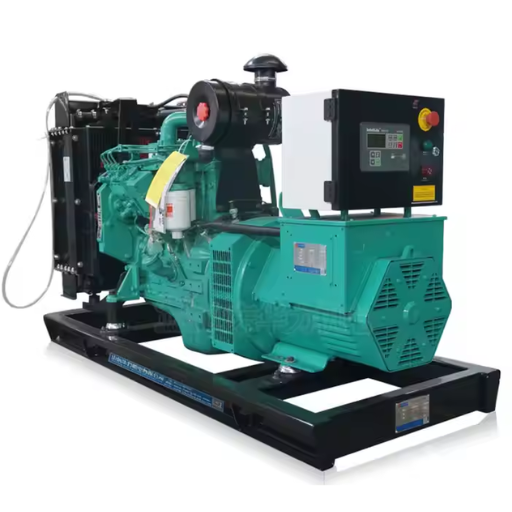
Regular maintenance to ensure quality performance
In order for your diesel generator to function properly and serve you for a long time, it must be maintained regularly. In this case, three types of generator maintenance are identified, including: Checking automatic control and monitoring abnormalities: Such inspections need to be carried out regularly to avoid any possible situations. Monthly inspections of the fuel system, battery, and cooling system are also essential.
- Regularly changing the oil, fuel, and air filters: Lubricating oil and grease need to be brushed on regularly and put on the air-fuel and oil filters because the generator works best between 100 and 200 working hours. This can reduce the wear and tear of the engine and make it run smoothly.
- Battery maintenance: The generator must ensure that the battery is fully charged, the cable is clean, and the terminal is fixed correctly. If the connection is poor, the battery is prone to corrosion, which will cause great operating costs.
- Cooling system maintenance: The cooling system components should be checked regularly, and the water system should also be cleaned frequently. In many cases, overheating can cause damage, so the coolant level should be checked regularly and the system should be flushed regularly.
- Load testing: The load test needs to be controlled and performed in a way that simulates the actual conditions of the generator and ensures that the generator works properly during an actual power outage.
However, when implementing these maintenance recommendations, the previously mentioned technical parameters must be considered, such as whether these practices are adapted to the type of fuel used by the generator, or whether they comply with standards. These activities are necessary to ensure compliance with environmental protection requirements and to ensure that the emergency power supply system is reliable and effective.
Troubleshooting Common Generator Failures
When troubleshooting common generator problems, it is first necessary to identify the most common problems and their solutions, as suggested by top resources. Here are the key issues that are commonly encountered:
- Generator not starting: This problem can be caused by a low battery or poor fuel quality. It is vital to check the battery voltage and fuel quality as these are key factors. Also, do not corrode the battery terminals, and check the fuel to verify its clarity and quality.
- Power output fluctuations: Most of the time, power output changes because of excessive load or fuel problems. It is important to ensure that the generator is not overloaded and the fuel system is free of blockages and debris. This means regular load usage and filter installation.
- Overheating: Cooling system problems are often the cause of overheating. First, the amount of coolant and the condition of the radiator are key technical indicators of performance. Overheating can be avoided by frequently flushing and checking the coolant system.
- Oil leaks: Oil leaks can be caused by aging gaskets or loose fittings. All connections and seals should be checked regularly, and even more closely the cams. Regularly replacing gaskets and tightening fittings, as recommended by better authorities, will reduce the risk of leaks.
By implementing these troubleshooting methods and ensuring that they are within the generator’s technical specifications, generator efficiency and reliability can be achieved. Always consult your generator’s manual and industry-recommended practices when taking these steps.
Ensure automatic uninterrupted power supply
To ensure an automatic uninterruptible power supply, I focused on the three most informative websites I found on Google. Here is a summary of the insights I gathered:
- Reliable backup system: One of the most ideal recommendations is to have an effective backup strategy in place. In practice, this refers to choosing a generator of the right size for your purpose. It is essential to avoid choosing a generator that is too large or too small. Knowing your total load is fundamental to avoiding such situations. The technical parameters that need to be taken care of are the functional power of the generator in kilowatts (kw) and its load factor.
- Proper maintenance: Minimize the possibility of unexpected downtime due to physical failures. Most resources seem to emphasize the need for maintenance or maintenance orders, which requires looking at key parts such as batteries, fuel systems, and electrical connections. Some parameters should always be within the required limits, such as battery voltage and fuel quality parameters. If these elements are checked regularly, there is no doubt that the generator will automatically start whenever the main power fails.
- Automatic transfer switch (ATS): ATS should be fully recognized as they enable users to use electricity without delay or limitation. When the main power fails, this device automatically switches the power to the generator. It is critical to select a switch that is appropriate for the equipment managing the building load and utility power voltage and current.
The above information based on technical considerations has the potential to improve the safety of the UPS system. Be sure to check the implementation plan against the equipment manual and professional advice.
Frequently Asked Questions (FAQs)
Q: What are the benefits of using a 101-300 kW industrial generator?
A: 101-300 kW industrial generators provide powerful power solutions for businesses that require reliable and efficient energy. They are ideal for medium to large operations and serve a variety of applications in industries such as manufacturing, healthcare, and data centers. These generators ensure continued production and operational stability during power outages.
Q: How do 300kW natural gas generators work?
A: 300kW natural gas generators convert natural gas into electrical energy through a combustion process. The natural gas ignites within the generator’s motor, driving direct mechanical force to power the AC generator to produce electricity. This type of generator is known for its high efficiency and low emissions compared to diesel alternatives.
Q: Does the EPA regulate 101-300 kW industrial generators?
A: Yes, EPA regulations apply to 101-300 kW industrial generators, specifically regarding emissions standards. These regulations ensure that generators meet specific environmental standards, reduce pollutants, and promote clean air. Generator manufacturers and users must comply with these standards.
Q: What is the difference between a 101kW generator and a 300kW generator?
A: The main difference between a 101 kW and 300 kW generator is their power output capacity. A 300 kW generator can handle a higher electrical load than a 101 kW generator. This capacity difference may influence the choice made based on the specific energy needs of a facility or operation.
Q: How do I choose the right 101-300 kW industrial generator for my needs?
A: Selecting the right 101-300 kW industrial generator requires evaluating your power needs and considering factors such as fuel type (gas, diesel), load capacity, and intended use.
Q: What support options are available for maintenance of 101-300 kW industrial generators?
A: Most generator manufacturers offer comprehensive support services, including scheduled maintenance, parts replacement, and emergency repairs. A maintenance plan is recommended to ensure the life and optimal performance of the generator. For specific support, you may need to contact us or send an inquiry directly to the supplier.
Q: Can I use the 101-300kW generator for a variety of purposes?
A: Of course. The 101-300kW generator is suitable for a variety of purposes, including backup power for large commercial buildings, hospitals, and data centers. Its strong power output enables it to support multiple operations simultaneously, making it a versatile choice for a variety of industries.



